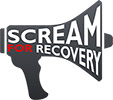Choosing a clean and sober life rather than one clouded by drugs or alcohol is not a simple decision nor is it easy for the addict to achieve and sustain. Most often, whatever problems or situations made a person escape into drugs or alcohol initially will still be waiting for them after recovery. After all, recovery is getting back what you once had and that includes many of the bad things as well as the good. The trick is to learn how to deal with the bad in a new and non-addictive way. Choosing a sober living environment is key
Recognizing drug addiction isn’t always easy, especially if a loved one is adept at hiding their condition. While physical signs like tremors, confusion or reduced motor skills can be easy to spot, such behaviors don’t always clearly suggest drug abuse or drug addiction. What families should remember, however, is that changes in behavior are always worth noting. Moreover, when multiple behavioral signs are present, families should, indeed, suspect a problem that needs addressing. What are the signs of alcohol or drug addiction? If you are worried that your loved one is battling a reliance on alcohol or a secret substance
Alcohol is legal. Drinking alcohol is legal. But the word legal doesn’t mean that it’s safe or healthy. In honor of Recovery Month, we thought it would be a good idea to explore why something that is so ingrained in our culture is actually just as dangerous a drug as the ones that are dubbed illegal. 3 Reasons You Should Care About Alcohol Addiction (even if you’re not an addict) Alcohol is the most commonly used addictive substance in the United States. Since it’s legal, alcohol has surpassed the taboo reputation of many other drugs like cocaine or heroin. However,
SAMHSA, the Substance Abuse and Mental Health Services Administration, defines recovery as “a process of change through which individuals improve their health and wellness, live self-directed lives and strive to reach their full potential.” Today, when individuals with substance use disorders seek help, they are met with the knowledge and confidence that anyone can recover successfully. According to SAMHSA, “Hope, the belief that the challenges and conditions of alcohol and drug dependency can be overcome, is the foundation of recovery. A person’s recovery,” they say, “is built on their strengths, talents, coping abilities, resources, and innate values. It is holistic,
“This is your brain,” the voice of Emmy Award-Winning actress, Allison Janney, says as a hand shows you an egg. You look down at a hot skillet, hearing her say “this is drugs.” The egg drops and hits the surface, hissing and bubbling as it quickly cooks. “This is your brain on drugs,” she continues. “Any questions?” The jarring television spot, entitled “Fried Egg 2016,” was directed by two-time Oscar winner Janusz Kaminski and might seem familiar to adults in their thirties. The Partnership for a Drug-Free America debuted the first version of the fried egg advertisement in the 1980s.
Olympic athlete Simone Biles has been called the best gymnast in the world after her continuously stellar performances. She’s a four-time US champion and a three-time world champion who’s won a record breaking 14 world championship medals. 10 of those medals are gold. Simone is expected to win the all-around gold medal before the 2016 Rio Olympics are finished, possibly with multiple other gold medals. But things weren’t always looking up for her. Drugs were a dark turning point in the life of young Simone Biles, although not in the way one might initially think. Her mother, Shanon Biles, suffered
Demi Lovato Demi has been open about her struggles with addiction and mental illness. She went into rehab in 2010 due to a drug and alcohol addiction, eating disorder, and mental issues including cutting. While in treatment, she was diagnosed with bipolar disorder. “Mental illnesses in general, they’re not talked about as much as they should [be],” she explained. “I would love for people to become more educated.” Lovato is also a mental health advocate for Be Vocal: Speak Up For Mental Health, an initiative that encourages people to use their voice in support of mental health. She also understands
According to the National Institute on Drug Abuse, addiction is, indeed, a mental health problem as well as a physical health issue. All types of addictions—drug addiction, alcohol addiction, gambling addiction—are governed by an underlying compulsion that is psychological in nature. While the physical addiction to drugs or alcohol is powerful and associated with withdrawal symptoms of a physical nature, the mental aspects of addiction can be just as strong and require treatment. Abusing drugs or alcohol also changes the chemistry of the brain and can lead to a pronounced mental illness that ranges from depression to psychosis. When an







